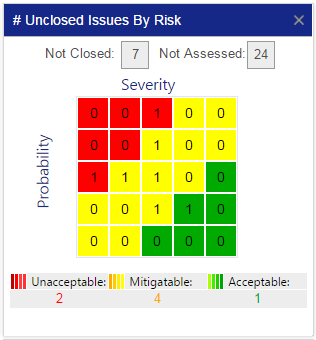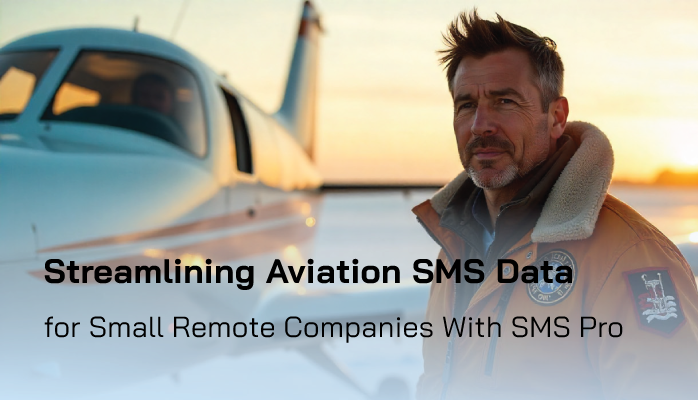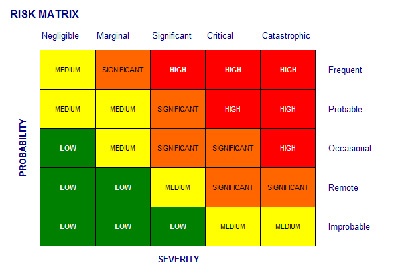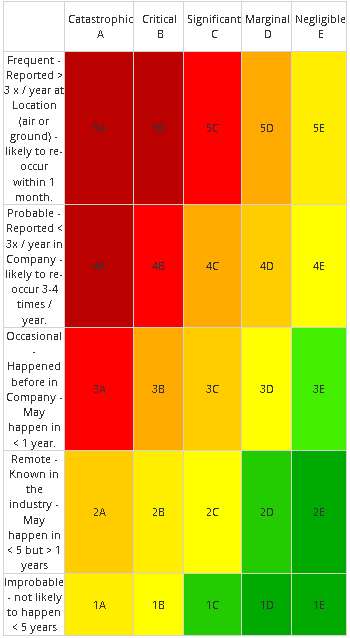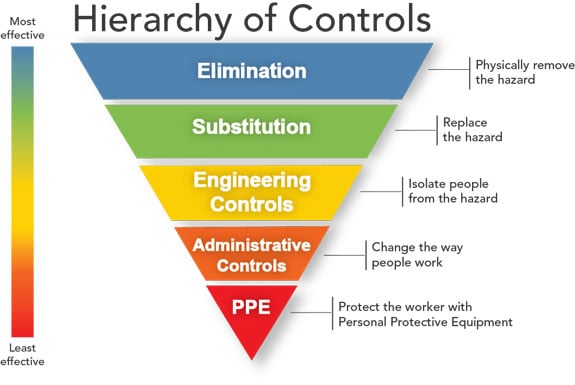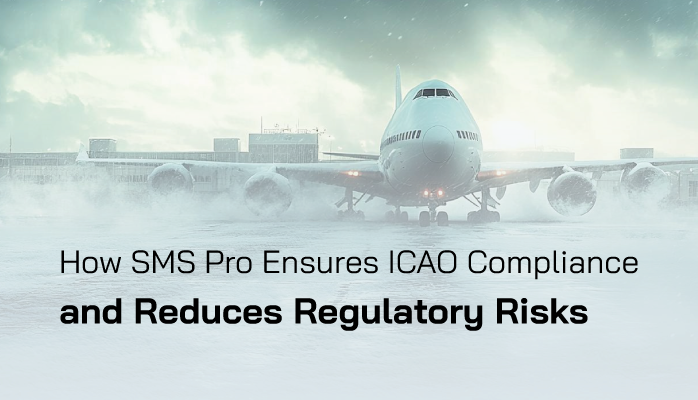Christopher Howell
Manage global operations for aviation safety management systems (SMS) software that facilitates regulatory compliance, such as ICAO, FAA, Transport Canada, IS-BAO. Manage software engineering support efforts to local Alaska businesses. Assist in design, implementation, testing and documentation of complex, three-tier Windows applications relying heavily upon secure Web services technology.
For new aviation safety managers, creating effective safety management system (SMS) documentation can be a daunting task, especially when it comes to residual risk.
Residual risk—the risk that remains after mitigation measures are applied—is a critical component of aviation safety risk management. Properly identifying and documenting residual risk ensures compliance with Federal Aviation Administration (FAA) regulations, enhances operational safety, and prepares organizations for audits.
This evergreen guide provides a step-by-step approach to help aviation safety managers master this process, even if they’re starting from scratch.
Read More
Topics:
Aviation SMS Implementation,
2-Safety Risk Management,
Risk Management Training,
FAA Compliance
Aviation Needs Specialization
From airlines to maintenance, repair, and overhaul (MRO) organizations, adhering to rigorous safety standards is critical. This is where Safety Management Systems (SMS) come into play, mandated by the International Civil Aviation Organization (ICAO) and regulators like the FAA and EASA.
Read More
Topics:
Aviation SMS Database,
Risk Management Software,
Risk Management Training,
Quality-Safety Management
SMS Data Management for Small Companies in Remote Regions
In remote regions, small aviation companies face unique challenges in maintaining a robust Safety Management System (SMS). With human resources stretched thin and trained safety managers often unavailable, office personnel without operational experience are frequently tasked with managing critical SMS data.
Read More
Topics:
3-Safety Assurance,
2-Safety Risk Management
Pros and Cons of Sharing Hazard Risk Registers
In the high-stakes world of aviation, safety is paramount. For aviation safety managers and accountable executives, maintaining a robust hazard risk register and implementing effective risk controls are critical to ensuring operational safety and regulatory compliance. However, a growing debate centers on whether to share these risk registers and controls with industry peers, regulators, or the public. Sharing can promote safety and foster collaboration but may compromise competitive advantages and expose vulnerabilities.
Read More
Topics:
Key Performance Indicators,
Aviation SMS Database,
3-Safety Assurance,
Risk Management Software,
2-Safety Risk Management
For new aviation safety managers, creating aviation safety management system (SMS) documentation that meets Federal Aviation Administration (FAA) compliance standards can feel overwhelming. The risk matrix process is a cornerstone of aviation safety risk management, helping organizations identify, assess, and mitigate risks effectively.
Proper documentation ensures compliance, enhances safety, and streamlines audits. This guide outlines actionable steps to document the risk matrix process, tailored for FAA requirements, to help safety managers build a robust SMS.
Read More
Topics:
Aviation SMS Implementation,
2-Safety Risk Management,
FAA Compliance
For new aviation safety managers, documenting the risk matrix process within a Safety Management System (SMS) can be a daunting task. The risk matrix is a pivotal tool in aviation safety risk management, enabling organizations to assess and prioritize hazards based on severity and likelihood.
For U.S.-based operators, verifying and documenting the accuracy of the risk matrix is essential to meet Federal Aviation Administration (FAA) requirements under 14 CFR Part 5, ensuring regulatory compliance and robust safety outcomes. Accurate documentation not only prepares organizations for FAA audits but also promotes consistent risk assessments and strengthens safety culture.
This article provides aviation safety managers with a clear, step-by-step guide to document risk matrix accuracy, aligning with FAA expectations and simplifying the process for newcomers.
Read More
Topics:
Aviation SMS Implementation,
2-Safety Risk Management,
FAA Compliance
For new aviation safety managers, developing a safety management system (SMS) that meets Federal Aviation Administration (FAA) standards can be challenging, particularly when it comes to crafting effective risk controls.
Risk controls are the backbone of aviation safety risk management, designed to mitigate hazards and ensure safe operations. Poorly designed controls can lead to persistent risks, regulatory non-compliance, and safety incidents.
This evergreen guide outlines best practices for creating robust risk controls within an aviation SMS, helping safety managers build a compliant and proactive safety framework.
Read More
Topics:
2-Safety Risk Management,
Risk Management Training,
FAA Compliance
Management of Change
In the dynamic world of aviation, change is inevitable. Whether it’s adopting new technology, updating operational procedures, or responding to regulatory shifts, aviation organizations must navigate these transitions effectively to maintain safety.
Within a Safety Management System (SMS), Management of Change (MOC) is a cornerstone process that ensures changes are implemented without compromising safety. For global aviation safety managers, mastering MOC is critical to fostering a proactive safety culture and mitigating risks.
Read More
Topics:
3-Safety Assurance
Safety Promotion Concepts
In the high-stakes world of aviation, where safety is non-negotiable, a robust Safety Management System (SMS) serves as the backbone of operational excellence. The International Civil Aviation Organization (ICAO) outlines four pillars of SMS: Safety Policy, Safety Risk Management, Safety Assurance, and Safety Promotion.
While all pillars are critical, Safety Promotion is often the linchpin that drives a proactive safety culture, ensuring that safety principles are not just documented but lived and breathed across an organization.
Read More
Topics:
4-Safety Promotion
Ensures ICAO Compliance
In the aviation industry, compliance with International Civil Aviation Organization (ICAO) Safety Management System (SMS) standards is not just a regulatory requirement—it’s a critical safeguard against operational risks and financial penalties.
Read More
Topics:
Aviation SMS Database,
Risk Management Software

